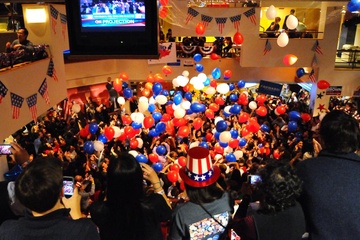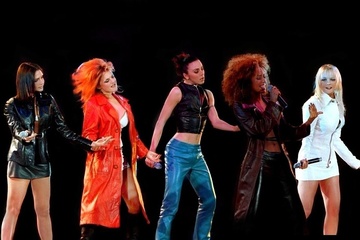Harvard is represented in my head by a large Venn diagram. The two overlapping crimson circles are labeled “Before” and “After.” The first circle encompasses my freshman and sophomore years. The second contains my junior and senior years. They are separated by the year I was gone. Not many things fall in the overlap.
{shortcode-eb1acb63106b0dd741f0f92d1a242e36558fad24}
I will refrain from recounting the details of, or the reason for, my absence. I tell myself it is not the type of story that can be summed up in a sentence or two, although that is not technically true. I often condense the story when people ask why I am graduating a year late. Sometimes I present it as the punch line to a not very funny joke. Sometimes it is easier to lie. It would be more accurate to say it is not the type of story that should be summed up in a sentence or two. The story of my year away is the type of story that should be told in person. I need to see my audience’s face and gauge their reaction. I want to make sure they understand. Come ask me. I’ll probably tell you the truth.
When I returned to campus, I found myself shunted into an alternate reality. The world was a parody of the one with which I was familiar. I did not return to my Harvard but to a warped version of the one I left. I mentally refer to this version as “After.”
On the surface things were the same. I looked around and saw Neo-Georgian architecture inhabited by roughly the same eclectic mix of sweatpants, glasses, and crested blazers. There were some obvious differences. My blocking group had adopted three strangers in my absence. My formerly inseparable linking group had splintered for reasons that are still unclear to me. Dinner conversations now revolved around job hunts instead of the weekend’s social activities.
These I had prepared for. It took longer for me to notice the more subtle changes. My friends have been replaced by doppelgängers that look and sound the same as my former friends. They have the same names and faces, have the same interests, but these are not the same people I had “Before.” Inside jokes that seem familiar in their content and delivery pass just a few inches above my head. I was not here when they started. Blockmates surprise me with moments of unexpected maturity, and I find myself wondering when the kid who once hung a framed picture of himself above his desk grew up. A friend mentions the girl who broke his heart and whom I have never met. Life at Harvard continued without me, and my friends changed. They are different. Better, but somehow alien.
But the biggest difference is internal. There is a fair amount of nostalgia affecting my memories of “Before,” but I do not remember the presence of the pervasive sadness that now seems to settle on everything like a thin layer of dust. Sometimes a friend will ask why I am sitting quietly in a room full of laughter, and I will try to tell them what it is like away from Harvard. How I am torn between trying to reclaim my old life and trying to start over. How I missed moments like this, when my friends pack into a circle of couches until the only open space to sit on is the arm of a teal pleather chair. How we vowed to burn the chair before even considering bequeathing it to another generation and their memories.
I struggle to separate how things actually were from the way I remember them. I left for a reason. Many reasons. Two versions of “Before” fight in my head. There’s the shiny, pretty version that I prefer, the one where I spent all my time fascinated by schoolwork or going on ridiculous adventures with friends. I was happy and fulfilled. But there’s a deeper part of me that remembers it differently. The varnish is stripped off, and I see the moments when life was stressful, or sad, or even just dull. And I remember how many opportunities I let slip by. This version lets me see how I wasted those first two years going after what I thought was attainable, rather than what I coveted. It took leaving for me to realize that what I really wanted from this place was the chance to be my own person.
Of course, I can never articulate it that well. I stumble over my words and make self-deprecating jokes. Mostly I have given up trying to explain it to people. Maybe even now you still don’t get it. My friends certainly don’t. They just look concerned and shake their heads. Sometimes they ask if I am depressed. That is not it at all. Let me try again.
It is like when you pack a picnic lunch for the beach and you spend the morning running and digging and playing in the water. The sun rises into the sky and you spring across the burning sand to reapply sunscreen and refuel. You cannot completely clean the sand from your hands no matter how hard you try. The grit works its way into your food and mouth. You feel it grind between your teeth as you chew. But it doesn’t matter. It reminds you where you are, how much fun you are having, and why that day is special. The sand doesn’t ruin your lunch; it enhances it.
In the Venn diagram of my time at Harvard, very few things straddle the space between “Before,” and “After.” Most of these things are relatively insignificant—Eliot House, running along the Charles, a few clubs that survived the transition. That is intentional. When I came back to Harvard, I wanted to be different. I wanted to be better. I am still trying to shrink the space between “Before” and “After” until the two break apart into separate circles. Then I can put away the former. I can stop comparing the two and just enjoy myself. I am not quite there yet.
Zach T. Osborn ’14 is a History and Science concentrator in Eliot House. He asks that you not place him into a box, but rather a set of intersecting circles.



